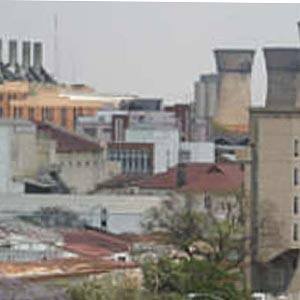
It is undisputed that there is a serious industrial decline in Zimbabwe. Again, it is acknowledged that Bulawayo industry is the hardest hit. As the nation draws closer to the do-or-die elections, the industrial decline, especially in Bulawayo, has been used as a canon fodder for political expediency. Politicians have been apportioning blame without any significant solutions being proffered.
Opinion by John Mwatangira
The resuscitation of the industry is an issue that must be treated with the utmost seriousness. We created our own spider web in which we are, today, caught up.
Politicians across the political divide and their supporting media and the civil society organisations must bury the hatchet and put heads together to come up with strategies that can revive industry. In this regard, there are key drivers that, if reinstated, can put the industry back on its feet.
Firstly, we need to play our political game in a way that will reinstate investor confidence. The elections must enable us to escape the faulty finding eyes of observers. The investors have taken a wait-and-see attitude. They are waiting to see if our electoral process would usher in an environment conducive for business operations.
President Robert Mugabe is repeatedly pleading for peaceful elections, so there is a great need to heed this call. Every party must ensure that their supporters shun political violence during the coming harmonised elections.
The media and the civil society must desist from raising false alarm of political violence.
Some sections of the media and the civil society have already begun reporting of imagined political violence. This will only scare away potential investors. While it is a known fact that some organisations profit from political crises, the fate of the general populace must take precedence.
- Chamisa under fire over US$120K donation
- Mavhunga puts DeMbare into Chibuku quarterfinals
- Pension funds bet on Cabora Bassa oilfields
- Councils defy govt fire tender directive
Keep Reading
Sanctions must be completely lifted so that our surviving firms can access international lines of credit. The wrong perception on the indigenisation law scares away potential investors who are made to believe that foreign companies are being expropriated in Zimbabwe.
Government introduced the Distressed Industry and Marginalised Areas Fund (Dimaf), which is meant to bail out the ailing companies. However, government has not yet injected its pledge of US$20 million into the fund. If government is really serious about resuscitating the industry, that money must be released forthwith, to complement the US$20 million from Old Mutual.
Zimbabwe’s economy was traditionally anchored by agriculture. This sector used to supply raw materials to the industry as well as creating demand for industry’s services and goods. The sector must be heavily funded. The 2013 budget must be, at least, applauded for recognising the importance of this sector in the revival of the economy. The minister of finance must walk the talk by releasing the budget allocation for 2013 agricultural projects in a timely manner.
Government must work on a land tenure act that will allow farmers to have bankable title deeds which they can use to borrow working capital. This will wean off farmers from government financial support.
Erratic supply and high cost of utilities such as electricity and water have been the major challenges that affect productivity. There is need to expedite the refurbishment of major power stations. The private sector must be allowed to generate electricity that complements the national grid. Alternatively, these small power stations can exclusively supply strategic firms like those that produce agricultural inputs, pharmaceuticals, mines, among others.
Infrastructural development should be prioritised as it is the precursor to industrial recovery. The railway system has to be improved so that the transportation of raw materials and goods becomes cheap for industries. The major roads should be rehabilitated. The Community Share Ownership Trusts must also assist in the infrastructural development.
Tourism is one sector that has the potential of turning around the fortunes of this country. The media, civil society and the political parties must assist, in this regard, by desisting from soiling the image of the country through falsehoods. Accessibility of tourist resort is a major concern in this sector that can be solved by creating a strategic partnership for Air Zimbabwe.
The high cost of local borrowing is one of the catalysts to the decline of the industry. Banks should be encouraged to charge low interest rates for manufacturing enterprises.
There is also a need to protect our local manufacturing firms from unfair competition from cheap imports. Our border posts should be cleared of graft and corruption as they have a direct effect on the cost of doing business in Zimbabwe.
- John Mwatangira is a political and social commentator based in Harare.











